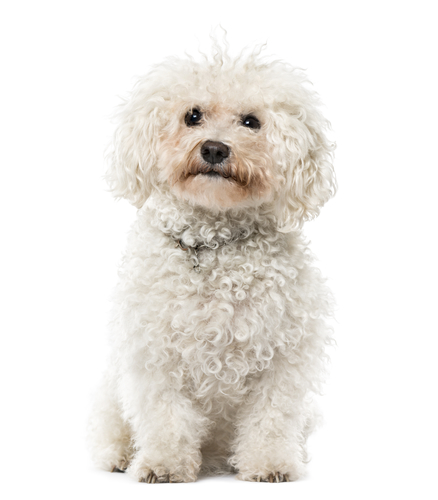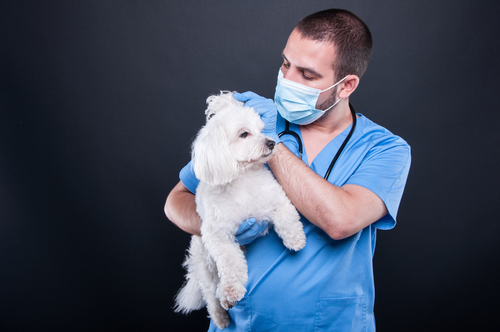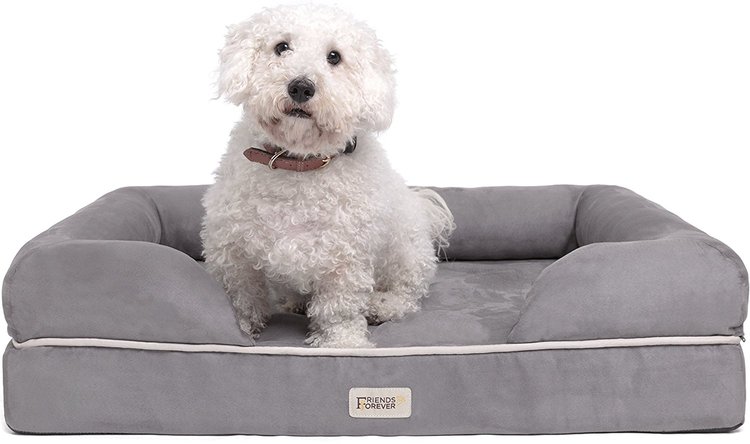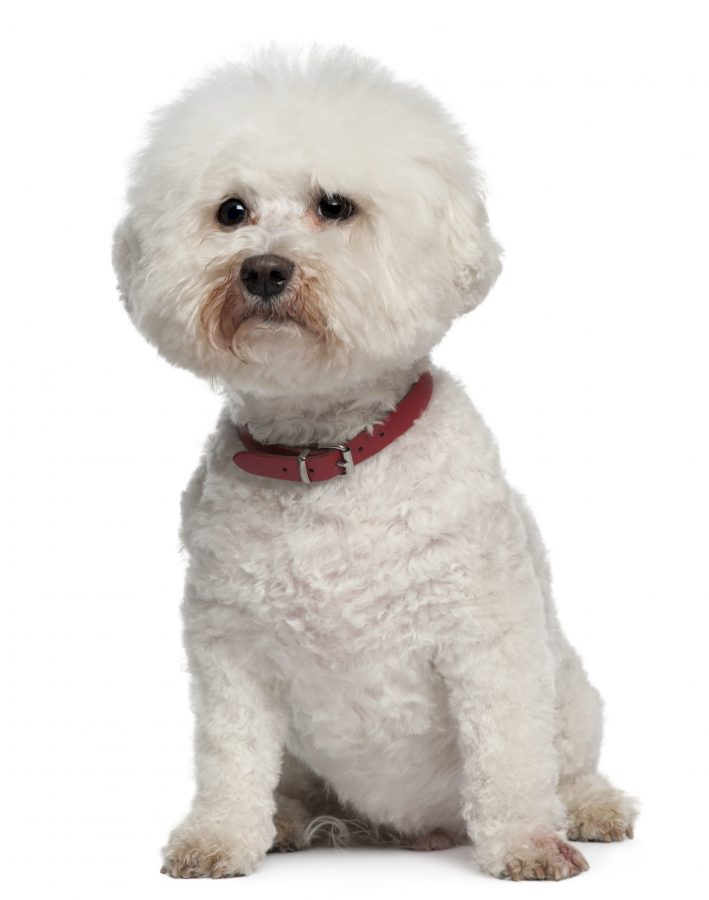Dog arthritis symptoms in Bichon Frises often mimic symptoms of other diseases. And to make it more confusing, arthritis in dogs is caused by more than one medical condition.
Keep in mind that, just like many other diseases, if arthritis is diagnosed early, you can help your dog be more comfortable and pain-free for a longer time.
Visiting your vet more often as your Bichon Frise dog ages, will help you stay on top of any senior dog issues that may arise.

How to Tell if Your Dog Has Arthritis
Most dogs develop symptoms of arthritis gradually. You probably won’t wake up one morning and say to yourself, “Gee I think my dog just got arthritis”. You will see symptoms develop over some period of time, perhaps months.
In fact, you will probably have to consciously think back over the last few months to decide when your dog started to have symptoms.
Here are some things to watch for:
Activity Level
- Your dog may not show excitement or interest in physical activities that she used to love – things like taking walks, playing with toys or rough housing with family members.
- She runs and jumps less frequently.
- If your dog stands up on her hind legs to say “Please” or beg for a treat, she may not do this anymore. Or she may try to do it, unsuccessfully.
- If you take your dog for walks on a sandy beach, he may show signs of stiffness and pain afterward. Sand is difficult to walk on, if you have painful joints, and it can aggravate arthritic symptoms.
- Hesitation to climb stairs
- Sleeping more than usual or having trouble sleeping
Movement
- Stiffness in your dog’s knees and elbows
- Lameness in one or more legs. You notice that your dog is favoring that leg or legs.
- Difficulty getting up when sitting or lying down
Temperament Changes
- Your dog may growl or show some aggression when you pick him up or handle him. Pay attention, especially if this is new behavior for your dog.
- You notice personality changes in your Bichon Frise.
- Depression symptoms
- Your dog whimpers or whines when you touch her
Diet and Weight
- Not eating all his food or eating it more slowly. This could be because reaching down to eat his food is putting stress on your dog’s neck.
- Weight gain because your Bichon is not very active anymore
Who Gets Arthritis?
It’s pretty hard to predict which dogs will or will not get arthritis. Stiffness and aching are part of growing old for dogs, just as they are for us.
However, veterinarians tell us that a whopping 20% of all dogs will develop osteoarthritis, the kind that most people get as they age.
Osteoarthritis is also known as degenerative joint disease, because it occurs when a dog’s joints wear out and break down.
Once in a while, a dog will have rheumatoid arthritis, but it is not nearly as common as osteoarthritis.
However, no matter which type your dog develops, it will surely slow him down. Dogs love to be active, but they can’t do as much when they have pain, aching and stiffness in their joints.
When to Suspect Arthritis
A Bichon Frise who has reached 75% of his estimated life span, is ripe for getting arthritis, if he is going to develop it. For a Bichon, that means that you should watch your dog and his activity level when he reaches 11 or 11.5 years old.
But age is not the only factor that you should consider. If your dog has had trauma or an injury to one or more of her legs or joints, that increases her changes of developing arthritis.
In addition there are several diseases that make your dog more prone to arthritis. For example, dogs with a history of hip dysplasia or osteochondrosis are likely to develop arthritic symptoms.
Most often the symptoms that you will notice are stiffness or lameness. Your dog may have trouble getting up from a lying down or sitting position. Often this happens after she has been sleeping for a while.
Sometimes a dog will seem OK when you talk a walk, but she gets stiff and sore afterward. Perhaps you notice this an hour or more later.
In addition, your little Bichon Frise may grunt, whimper or make noises that sound like she is in pain, when she tries to move or get around.
Could Your Dog Be Faking Pain?
Think about Pavlov’s theory and the way dogs learn. They do something, get a reward and then do whatever it takes to repeat the experience.
How does that work with pain? If your dog has ever been hurt, I’m sure she got a lot of attention and perhaps a few extra treats. Sounds like something pretty nice to me.
And Gary Landsberg, a veterinarian in Thornhill, Ontario agrees. He says that dogs don’t start out faking an injury, but they do learn that there are rewards for pain behavior. In humans, this is known as secondary gains.
Without knowing it, you may have created a monster. A dog enjoys extra privileges like sleeping with you or being pampered in any number of ways. As your dog recovers, she may find that faking pain once in a while is fun and rewarding.
It’s important to take care of your dog when she is hurting, but don’t be fooled if she wants the extra attention to continue!
On the other hand, if you suspect that your Bichon Frise has developed arthritis, it’s important to take her to the vet for a checkup.
Your vet will have suggestions to keep your dog comfortable if she has arthritis.
When you know what you are dealing with, you can take measures to help your dog and keep him comfortable.






Leave a Reply